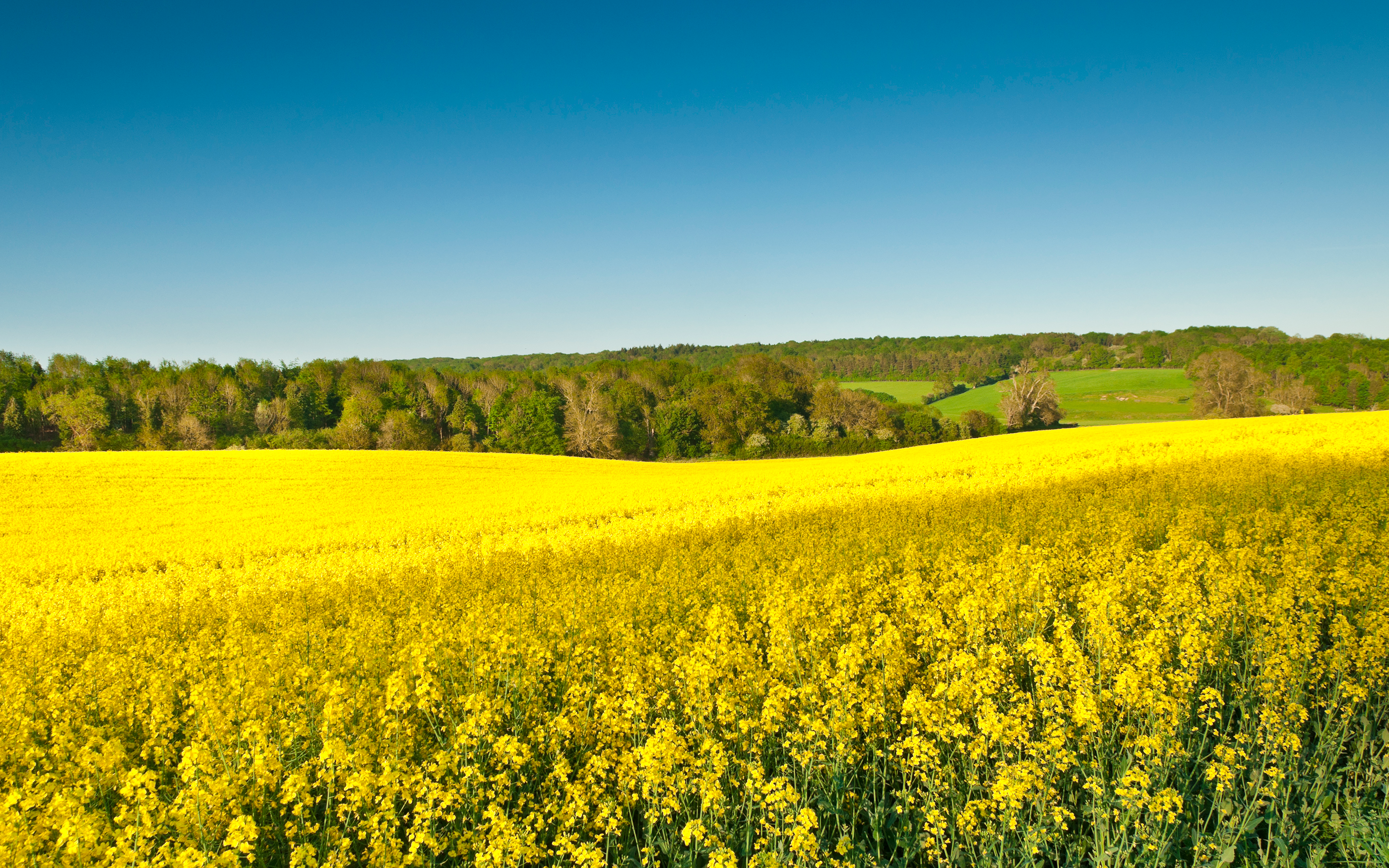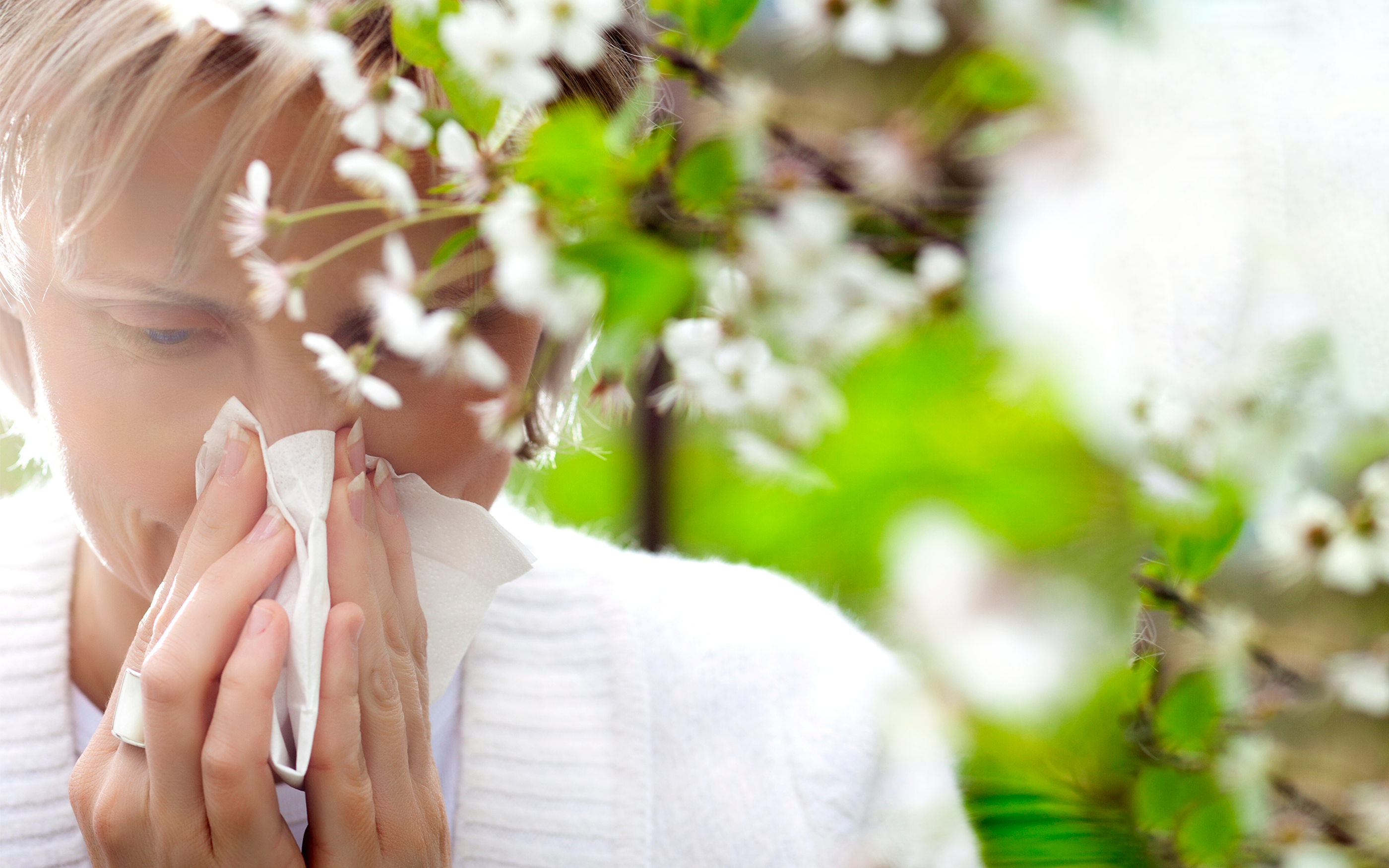What are the symptoms to look out for?
Symptoms can include sneezing, a running nose, itchy eyes and often itchy face, a blocked nose and sometimes what feels like blocked ears, fatigue, headaches, wheezing and a sore or burning throat. Sufferers may not succumb to all symptoms above, but often struggle with a combination.
What are you allergic to?
This short list of seasonal airborne allergens may give you an idea of your allergy trigger*:
Unfortunately symptoms are worse outdoors:
• Mid-March to early June: Birch
• Mid-March to mid-May: Plane
• End of March to mid-July: Oilseed Rape
• Early April to mid-June: Oak
• Early May to mid-September: Grass
• Early May to end of September: Nettle
Symptoms are worse indoors:
• Early Autumn/Late Spring: Mould
• All year (worse with central heating): Dust

Avoid allergy triggers
Keep the house clean and dust free: you may also benefit from an air filter that traps small particles.
If you’re allergic to pollen, keep windows closed, especially in the early morning and evening. Showering, rinsing your hair and changing your clothes when you get home can help you to leave your allergies at the door, although remember that if you have pets they will also carry dust and pollen. Avoid drying laundry outdoors. And anti-allergy bedding can alleviate allergies, particularly if the trigger is dust.
If you’re out and about, an allergen barrier balm applied around the nostrils can help to prevent hay fever. Keep an eye on the pollen forecast, and if the count is high, as it often is on warmer, dry days, stay indoors as much as possible and wear sunglasses when outdoors. When driving, keep car windows closed and the air intake on recirculate.
Home remedies
Your GP or local pharmacist can offer help and advice for allergies, but there are also some delicious (scientifically unproven) home remedies that may be worth a try:
• Honey contains pollen that desensitises you to other pollens; go raw and local
• Vitamin C is a natural anti-histamine found in raw fruit and veg like papaya, peppers, broccoli and strawberries
• Quercetin is also an anti-histamine found in capers, raw onion, garlic and cranberries
• Some herbal teas like chamomile, nettle and elderberry, are said to relieve allergies
Sources: The Guardian, 5 April 2015; www.aller07.gyuk.org/hayfever-and-allergic-rhinitis/hay-fever-and-allergic-rhinitis








